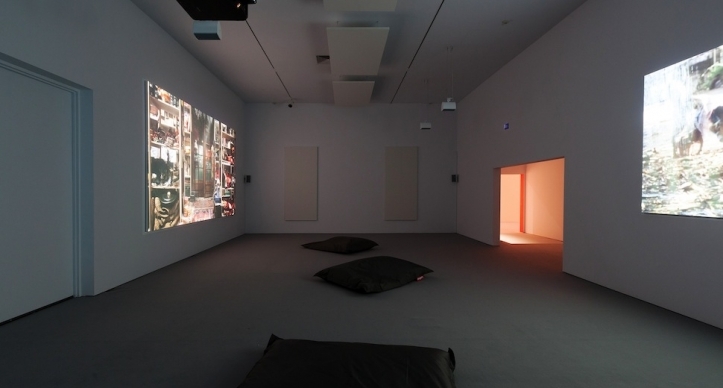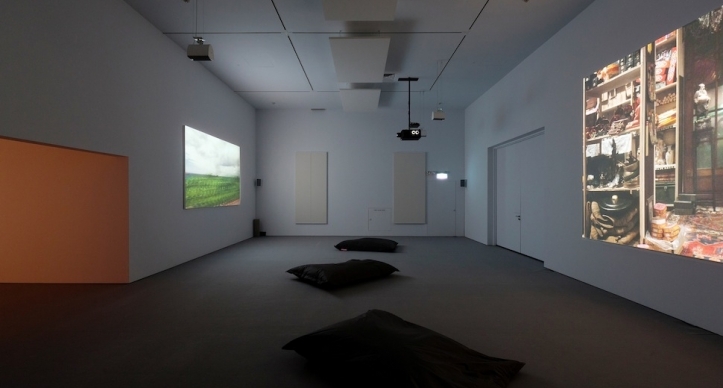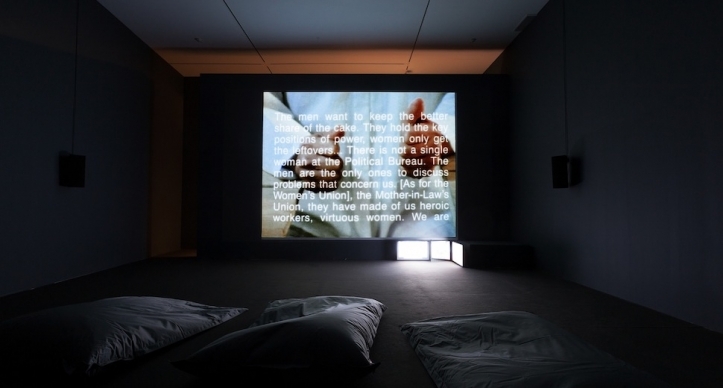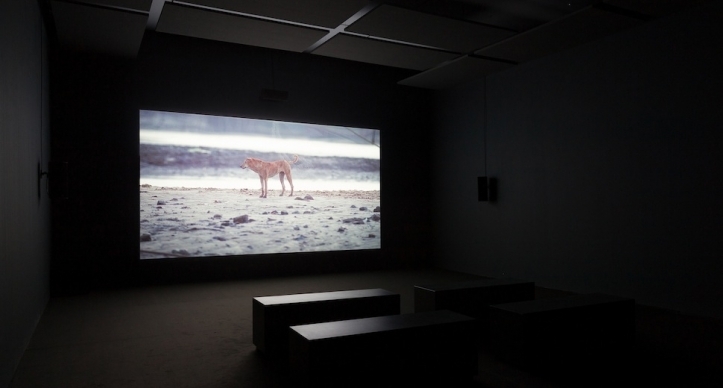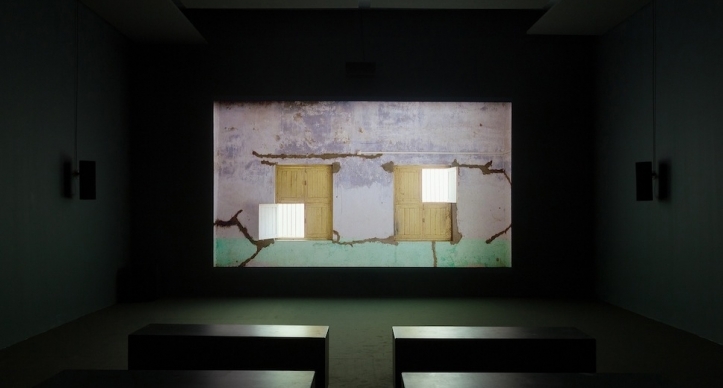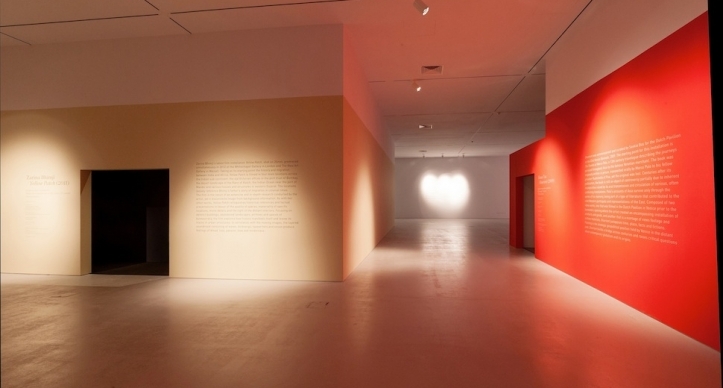Centre for Contemporary Art Singapore (CCA)
Conceived as a constellation of three artistic productions that together explore narratives of travel and migration, place and displacement, the personal intertwined with colonial history, Paradise Lost introduces an imaginary Asia — Asia as a space of projections and desires stemming from an experience of dislocation and asynchronicity. Curated by CCA Founding Director, Ute Meta Bauer and Anca Rujoiu, CCA Curator Exhibitions the show juxtaposes trans-generational perspectives, bringing together three major installations of moving image: Surname Viet Given Name Nam by Trinh T. Minh-ha, Yellow Patch by Zarina Bhimji and Disorient by Fiona Tan. While all three artists are of Asian descent, their education and artistic practice unfolded in Europe and the US, and gained international exposure from there. This is the first time these works are shown in Asia in an exhibition context.
In Surname Viet Given Name Nam (1989), Trinh T. Minh-ha questions the norms of representation and filmic documentation, as she examines the lives of women in Vietnam and the US through themes of dislocation, exile and resistance. A filmmaker, composer, anthropologist and post-colonial theorist, Trinh has advocated in her art and writings for a continual readjustment of our understandings of what is “other” and “otherness”.
In Yellow Patch (2011), Zarina Bhimji traces her father’s migration from India to East Africa, revisiting an array of buildings and landscapes in Bombay and Gujurat through a disembodied, almost ghostly viewing experience that isolates images from any contextual information. Refraining from facts and references, Bhimji allows stories to manifest in the physical structures of abandoned buildings — archeological palimpsests that evoke a phantomatic presence, the spectre of a land of emotion.
Inspired by Marco Polo’s travels, Fiona Tan’s Disorient was conceived for the Dutch Pavilion at the Venice Biennale in 2009. This project questions stereotypical representations of the East as constructed by Western historical narratives and orientalist imaginations. The work disorients our patterns of looking by contrasting hoards of exotic and aesthetically loaded objects with incongruous images of violence, pollution and poverty.
Paradise Lost complements current explorations on the region, from the 2013 Singapore Biennale to the 2014 Art Stage Singapore art fair, bringing to the fore a perspective of Asia and its colonial history as perceived from near and afar. The exhibition investigates fictions of Asia by complicating them with more fictionalities.
The Centre for Contemporary Art Singapore is a research centre of Nanyang Technological University, developed with support from the Economic Development Board, Singapore. Located in Gillman Barracks alongside a cluster of international galleries, the Centre for Contemporary Art Singapore Singapore is led by Founding Director Professor Ute Meta Bauer. The Centre for Contemporary Art Singapore takes a holistic approach towards art and culture, intertwining its three platforms: Exhibitions, Residencies and Research.
The Centre for Contemporary Art Singapore positions itself as a centre for critical discourse and experimental practices for Singapore, the region and beyond. It aims to play an active role within the local art scene, as well as being a part of the development of regional and international art infrastructures.
